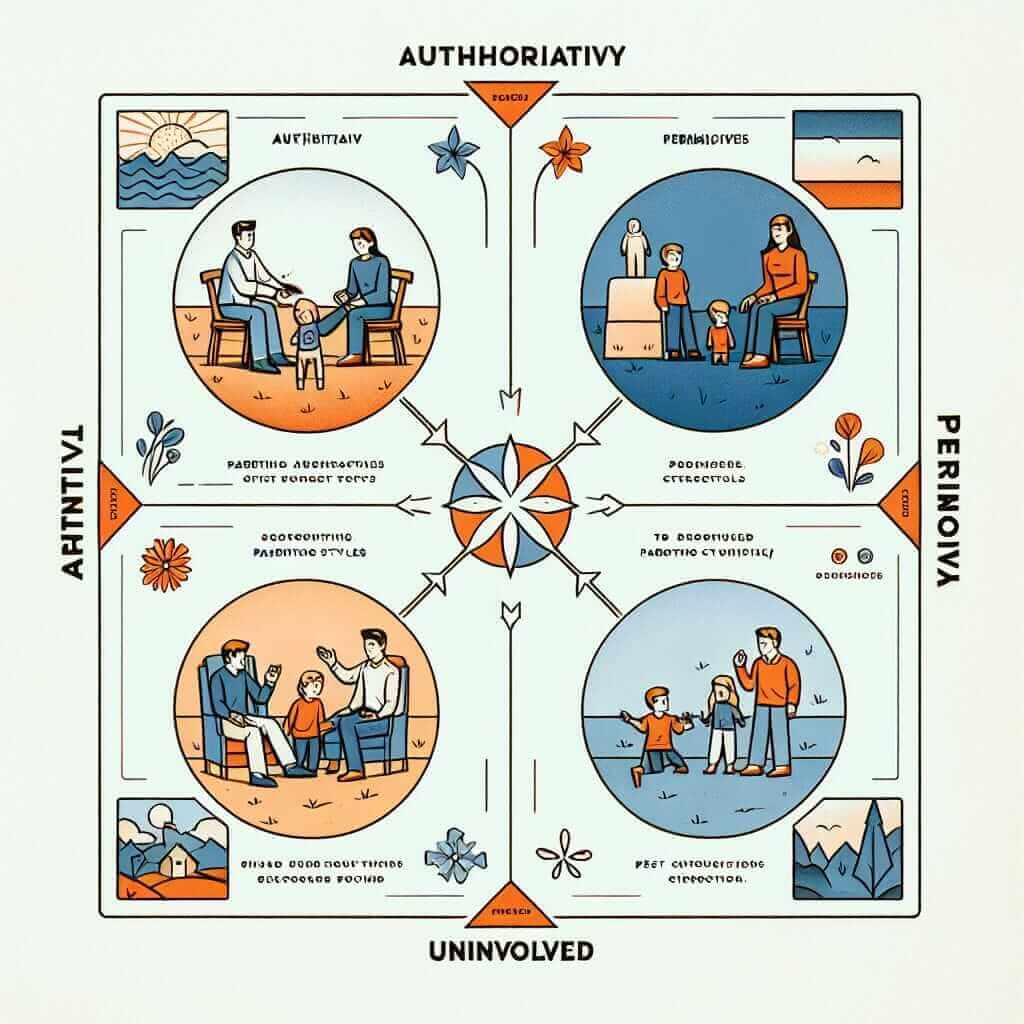The impact of parenting styles on a child’s development is a topic frequently debated and often appears in IELTS Writing Task 2. This essay will delve into the different parenting styles and their potential influence on various facets of a child’s life, providing a comprehensive analysis and a band 8 sample essay.
Here are a few examples of how this topic might be presented in the IELTS exam:
1. Discuss the different types of parenting styles and their potential effects on children.
2. Some people believe that a child’s success is primarily a result of the parenting style they are raised with. To what extent do you agree or disagree?
3. Analyse the challenges of modern parenting and their implications for child development.
Sample Essay: Analyzing the Impact of Parenting Styles
Let’s choose the first question as the basis for our sample essay:
Discuss the different types of parenting styles and their potential effects on children.
Analysis of the Question:
This question requires a balanced discussion of various parenting styles and their impact on children. You are expected to demonstrate knowledge of different parenting approaches and provide a nuanced analysis of their potential benefits and drawbacks.
Sample Essay:
Parenting styles, encompassing a range of disciplinary strategies and nurturing approaches, play a pivotal role in shaping a child’s development. This essay will discuss the four prominent parenting styles identified by psychologist Diana Baumrind: authoritarian, authoritative, permissive, and uninvolved, analyzing their potential impact on children’s emotional, social, and cognitive growth.
Authoritarian parenting, characterized by strict rules and high expectations with little room for dialogue, can lead to obedient and well-behaved children. However, this style often fosters a fear-based environment, potentially hindering a child’s emotional intelligence and decision-making skills. Children raised under this approach might struggle with self-esteem and display anxiety in social settings due to a lack of autonomy.
Conversely, authoritative parenting, which emphasizes open communication, warmth, and reasonable boundaries, tends to cultivate well-rounded individuals. Children raised in this environment are often self-assured, independent, and possess strong problem-solving abilities. They learn to express their emotions constructively and navigate social situations with confidence.
Permissive parenting, characterized by leniency and a lack of consistent discipline, might lead to children who struggle with self-regulation and responsibility. While they may be creative and free-spirited, the lack of boundaries can result in poor impulse control and difficulty respecting authority. This approach might also hinder their academic performance and interpersonal relationships.
Lastly, uninvolved parenting, marked by neglect and a lack of both warmth and control, can have detrimental effects on a child’s overall well-being. Children raised in this environment often grapple with attachment issues, emotional insecurity, and poor social skills. They might exhibit behavioral problems and struggle academically due to the lack of parental support and guidance.

In conclusion, while each parenting style has its strengths and weaknesses, research suggests that the authoritative approach, balancing warmth with structure, is most conducive to fostering healthy child development. It equips children with essential life skills, emotional intelligence, and resilience, paving the way for their future success and well-being. (Word count: 328)
Notes on Writing:
- Structure: Ensure a clear introduction, body paragraphs addressing different parenting styles, and a concise conclusion.
- Vocabulary: Utilize a range of vocabulary related to child development, parenting, and psychology.
- Grammar: Pay attention to verb tenses, subject-verb agreement, and accurate use of articles and prepositions.
- Examples: Provide specific examples to illustrate the effects of different parenting styles.
Vocabulary:
- Authoritarian (adj.) /əˌθɔːrɪˈteəriən/: Enforcing strict obedience to authority.
- Authoritative (adj.) /əˈθɔːrɪˌteɪtɪv/: Able to be trusted as being accurate or true; reliable.
- Permissive (adj.) /pərˈmɪsɪv/: Allowing or characterized by great or excessive freedom of behavior.
- Uninvolved (adj.) /ˌʌnɪnˈvɒlvd/: Not connected or concerned with someone or something, typically as a matter of choice.
- Fosters (verb) /ˈfɒstəz/: Encourage or promote the development of (something, typically something desirable).
- Hinder (verb) /ˈhɪndə/: Create difficulties for (someone or something), resulting in delay or obstruction.
- Cultivate (verb) /ˈkʌltɪveɪt/: Try to acquire or develop (a quality, sentiment, or skill).
- Leniency (noun) /ˈliːniənsi/: The fact or quality of being more merciful or tolerant than expected.
- Detrimental (adj.) /ˌdɛtrɪˈmɛnt(ə)l/: Tending to cause harm.
- Resilience (noun) /rɪˈzɪliəns/: The capacity to recover quickly from difficulties; toughness.
Conclusion:
Understanding the influence of parenting styles is crucial for creating a nurturing environment where children can thrive. This essay has provided a framework for analyzing this complex issue within the context of IELTS Writing Task 2. Remember to practice writing essays on similar topics, such as the impact of technology on children, the role of education, or the importance of early childhood experiences.